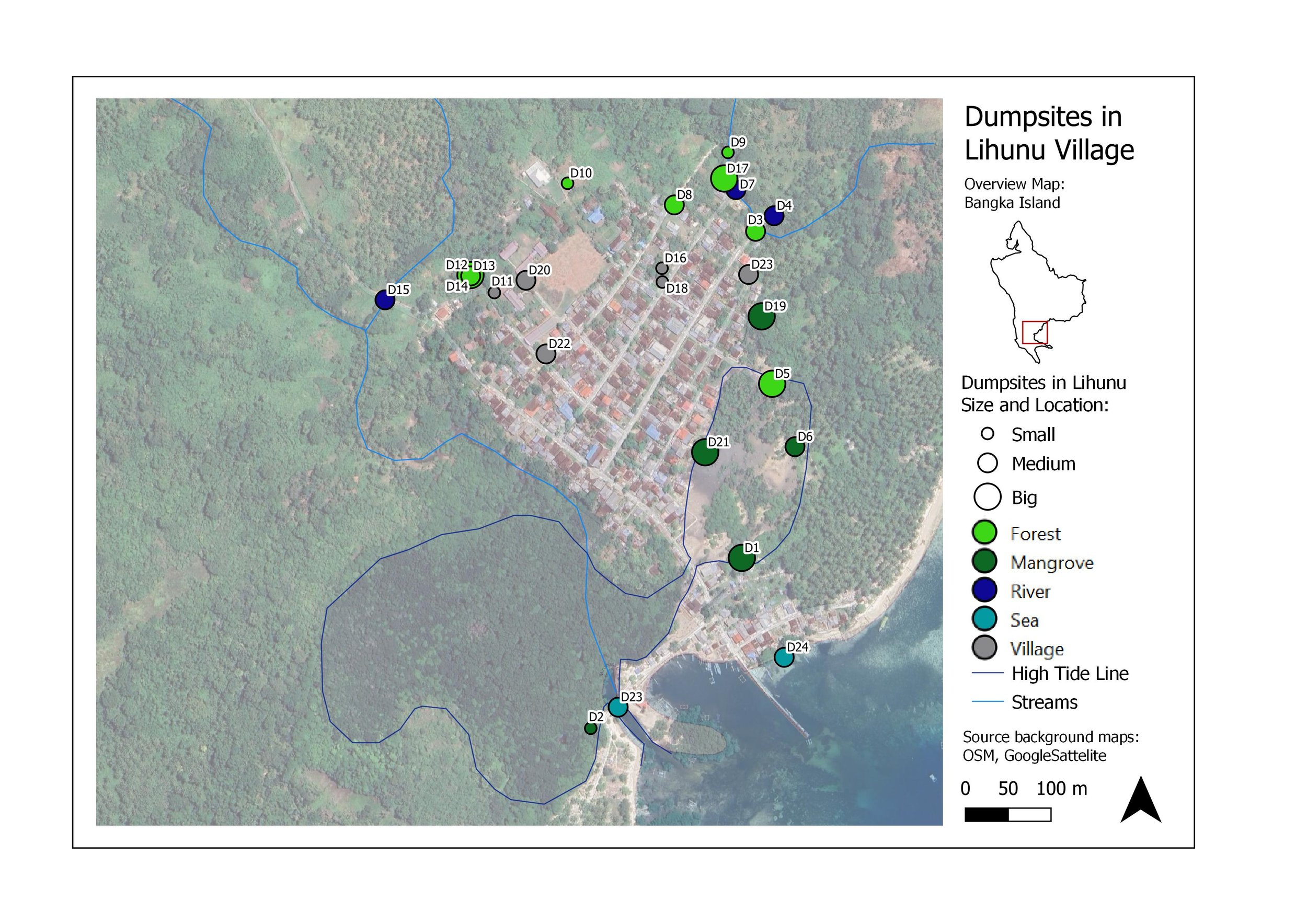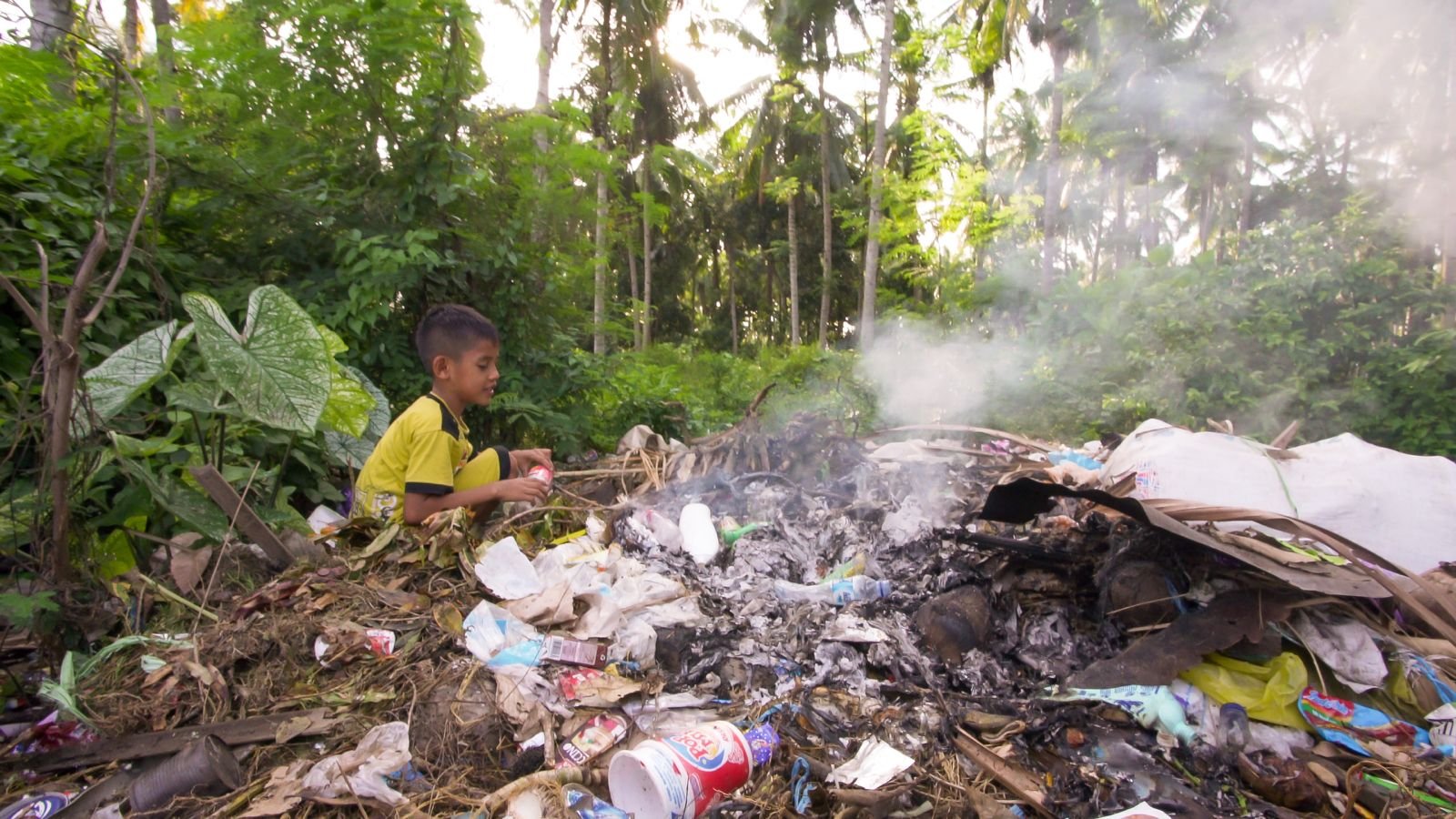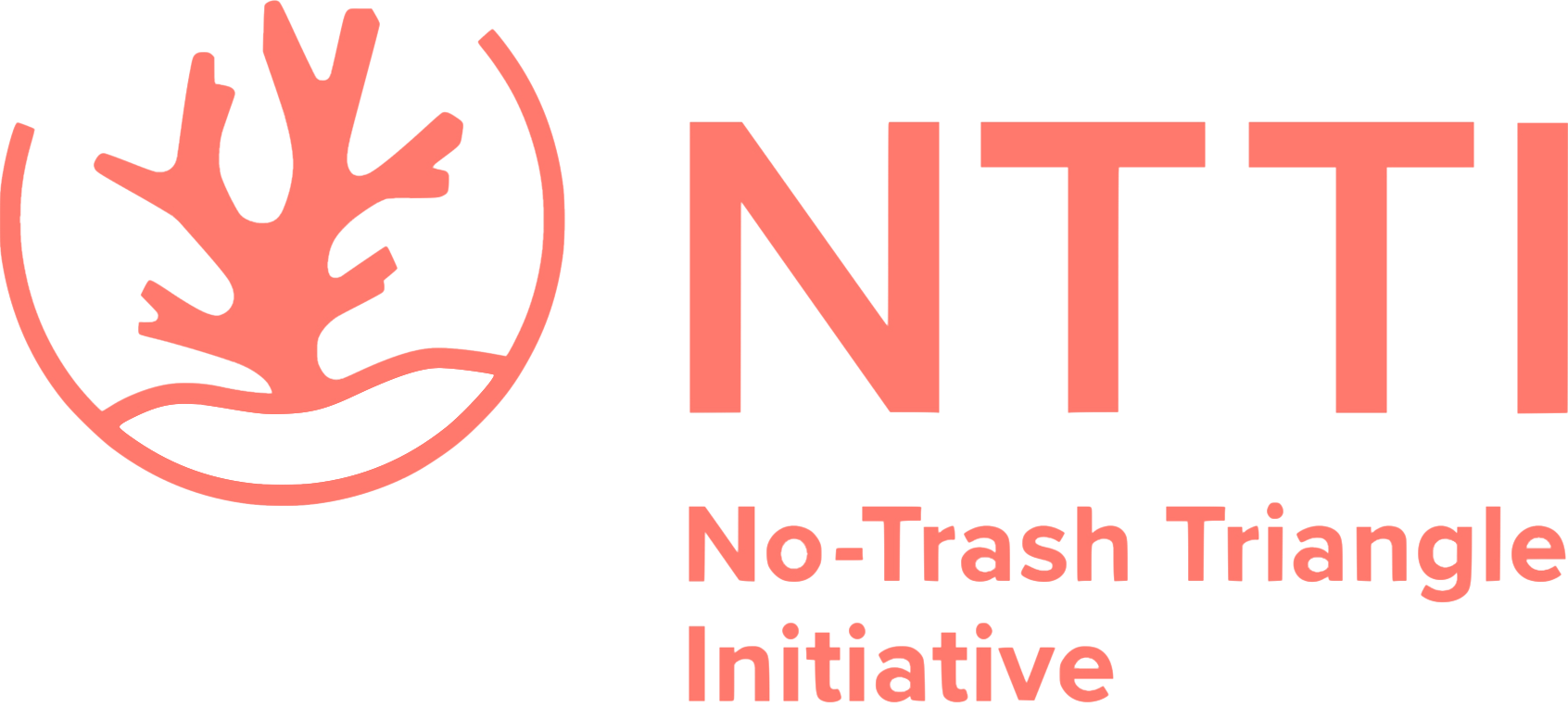Tackling Waste at the Source: A Research Journey on Bangka Island
When it comes to addressing plastic pollution, many conversations focus on cleaning up the ocean. But for Vici Eckerle, a German researcher who recently spent time on Bangka Island, the solution starts much earlier—at the moment waste is created in households. As part of the No-Trash Triangle Initiative’s (NTTI) efforts to support scientific research, we’ve worked closely with Vici over the past month as she set out to understand how waste is managed in the community and explore potential pathways for sustainable change.
Understanding Waste at the Household Level
“The moment an item turns from a product into trash mostly happens in households,” Vici explains. “That’s why I focused my research at the source—before waste ever reaches the environment.”
Over several weeks, she immersed herself in the daily life of Lihunu, the main village on Bangka Island, staying with Pak Jodi, the local school principal, and analyzing the waste habits of ten families. Beyond sorting and documenting waste, she interviewed 91 households to gather broader insights into local disposal methods and attitudes toward waste collection.
The Reality of Waste Disposal in Lihunu
One of the starkest findings was the prevalence of informal waste disposal. “I found around 25 wild dumpsites in and around the village, in forests, mangroves, streams, and even directly in the sea,” Vici shares. “For most people, it’s completely normal to collect their waste and bring it to the closest dumpsite. The only other option is burning, which is also very common.”
She noted that plastic waste, in particular, is often used as a firestarter to burn organic and wet waste, or even to cook food—posing serious health and environmental risks. One of the biggest challenges is the disposal of hygienic waste, such as diapers and sanitary products, which decompose poorly in the island’s hot and humid climate, leading to strong odors and unsanitary conditions.
Comparing Lihunu to a Village with Waste Collection
To put Lihunu’s situation into perspective, Vici also conducted a comparative study in a nearby village supported by Coral Eye, where a household waste collection system was introduced about a year ago. “People there are already used to sorting their waste—both at home and at work. While there are still occasional issues with burning and improper disposal, the overall improvement is inspiring,” she says.
In contrast, many Lihunu residents had never separated waste before Vici’s study. “For most people, it was completely new when I asked them to put all their non-degradable waste into the bags I provided.” However, this experiment also demonstrated the community’s willingness to engage, laying the groundwork for future waste collection efforts.
Community-Led Solutions and Opportunities
Despite the challenges, Vici was encouraged by grassroots waste initiatives already taking shape in Lihunu. “Two local dealers have started a collection system for green beer bottles. They pay a small fee per bottle, so people—especially children—gather and sell them. The bottles are then shipped to the mainland for reuse.” This informal system showcases the potential for incentive-driven waste management solutions.
How No-Trash Triangle Initiative Made This Research Possible
Conducting research in a remote island community comes with its challenges, but Vici credits NTTI for making her work possible. “NTTI organized everything—introducing me to Pak Jodi, the School on the Beach program, and local girls like Rini, Inggrid, and Mise, who became invaluable partners in conducting surveys. Everyone in Lihunu knows and trusts NTTI, which opened doors for my research.”
More than just facilitating logistics, NTTI is actively shaping attitudes toward waste. “The kids love the School on the Beach program. They’ve started sorting trash at home and even bring plastic waste to the school’s sorting station on their own initiative.” This education-first approach is key to long-term behavior change.
Looking Ahead: Scaling Solutions for Island Waste Management
Vici’s findings are already contributing to future waste management planning for Bangka. “By analyzing the types and amounts of waste generated, we can estimate costs and logistics for a waste collection system,” she explains. If successful, the system could be replicated in other nearby communities facing similar waste challenges.
Her experience also reinforced the complexity of waste management in tropical island environments. “I knew waste management was a complicated issue, but this research showed me just how different the challenges are depending on the region. Climate, culture, and infrastructure all play a role, meaning we can’t simply copy-paste European systems here.”
As for what’s next, Vici remains committed to the broader fight against plastic pollution. “I’m not sure exactly what my next steps will be, but I may continue working on plastic-related environmental issues when I return to Germany.”






A Model for Future Research and Action
Vici’s work exemplifies how research, education, and community engagement can work together to create real change. Thanks to No-Trash Triangle Initiative’s support, her findings are not just data points—they are the first step toward a cleaner, more sustainable future for Bangka and beyond.
As NTTI continues to champion waste solutions across the region, Vici’s research serves as a powerful reminder that change starts at the source—and with the right partnerships, small steps can lead to big transformations.

